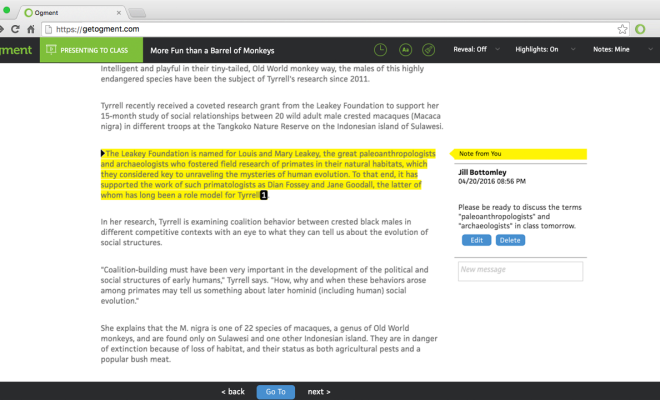Using Video to Maintain the Human Connection During the COVID-19 School Closures

With everyone working from home, an economically challenged district is using live and recorded video to bring coaches, teachers, and students together.
By Rachel Caulder
With schools closed due to the COVID-19 crisis, everyone in Marion County Schools is away from our students and colleagues. As an instructional coach working from an unfamiliar place—my home—I’ve been asking myself some fundamental questions. What do my teachers need from me? How can my teachers best support our students who live and teach in a socio-economically challenged county? What does education look like when it lacks direct human connection? How can I maintain a long-distance relationship with my colleagues so they can help our students who are facing economic uncertainty? How can we ensure students have the technology they need to stay regularly connected with the school?
an instructional coach working from an unfamiliar place—my home—I’ve been asking myself some fundamental questions. What do my teachers need from me? How can my teachers best support our students who live and teach in a socio-economically challenged county? What does education look like when it lacks direct human connection? How can I maintain a long-distance relationship with my colleagues so they can help our students who are facing economic uncertainty? How can we ensure students have the technology they need to stay regularly connected with the school?
Here are the answers I’ve come up with so far.
Connecting with Teachers as Human Beings First
To fill the void of human connection that so many of us feel right now, I use synchronous video via ADVANCElive for check-ins with my teachers. These check-ins are informal sharing sessions where teachers can ask questions, share answers, and connect with each other. As a coach, I’m trying to remind myself to keep these check-ins light. Right now, we all just need some genuine human interaction, and I don’t want to overwhelm teachers with checklists and guidelines during that interaction. During my first virtual check-in with teachers, it was reassuring to hear concerns, to validate those concerns, and to make plans for working through them.
During our initial meetings, many teachers demonstrated concerns about students’ ability to access the educational materials at home without the daily support of a classroom teacher. Additional concerns included supporting students who received special education services at school, grading materials equitably, and maintaining consistent contact with students who were difficult to reach.
Teachers were actively searching for ways to connect with students. Some teachers were successful in contacting most of their students using either phone, virtual meetings, or email communication. Some teachers still couldn’t make contact with all of their students and requested assistance from the school to make further attempts at contact. Our school has found that in some cases, we have to use multiple points of contact to connect with students.
Maintaining a Culture of Feedback
For the last two years, teachers in my district have been using ADVANCEfeedback to capture and share videos for reflection and feedback. As a coach, it was a logical move for me to connect with teachers through video using a familiar tool to maintain a sense of continuity and familiarity. For other schools and districts looking to do the same, it might help to know that the tool is available at no cost during the COVID-19 crisis. As we continue to navigate our new teaching lives, teachers, coaches, and leaders are staying connected so we can continue to do our best for our students.
Overnight, teachers have shifted the way they present instructional content. Many teachers never had to teach through video, and most have only experience recording themselves teaching live for self-reflection or peer feedback. Teaching content through video is difficult enough, but teaching content through video when you haven’t even had a crash course or time to refine the craft is a superhuman feat. Teachers need quality feedback on video lessons from peers and instructional leaders. Sharing screencasts of lessons with colleagues and coaches provides an avenue for feedback and new ideas.
Exchanging videos gives teachers the opportunity to learn from other teachers’ instruction and to reflect and adjust their instruction as needed. The common phrase “You don’t know what you don’t know,” captures what so many educators are feeling right now, and video provides a way for all educators to connect with somebody else who might know what they don’t. Some of our teachers began using video, both through virtual class meetings and pre-recorded models for explanations of concepts. As other teachers saw students responding well to this interaction and support, many began reaching out to find ways to create and share videos of their own. Teachers realized that they were going to have to push past a certain comfort zone in order to continue supporting students at home.
Combatting the COVID Slide
Before we left school, our teachers were diligently working on district-wide teams to collaboratively produce standards-aligned instructional plans. To continue the work that teachers have already done, I’m planning online training sessions that teachers can join live or watch when convenient. Many of my teachers know that students will need to navigate gaps in learning and that equity issues will likely be more pronounced when our schools open again. We have already started to think about how they can plan horizontally and vertically for instruction that will take place after our return. Meeting virtually in instructional teams allows teachers to work through the process together, sharing expertise and ideas prompted by the training.
While we may not be in the same building at the moment, video offers us a different avenue, a different challenge, and a different support. In this moment, when our students need us more than ever, teachers, coaches, and leaders have a chance to share, to learn, and to grow in our craft so that we can continue teaching, coaching, leading, and loving in new ways.
Rachel Caulder is a K-8 instructional coach at Creek Bridge STEM Academy in Marion County, South Carolina. Prior to her current coaching role, she taught high school ELA for 12 years and worked as a middle/high school literacy coach. She can be reached at [email protected].






